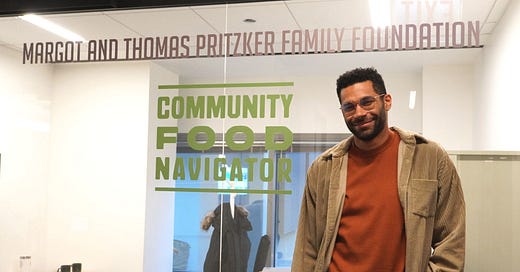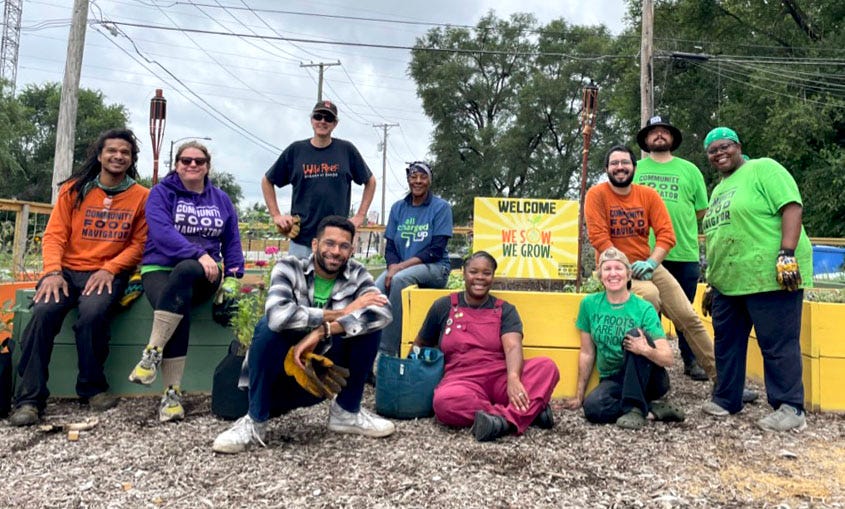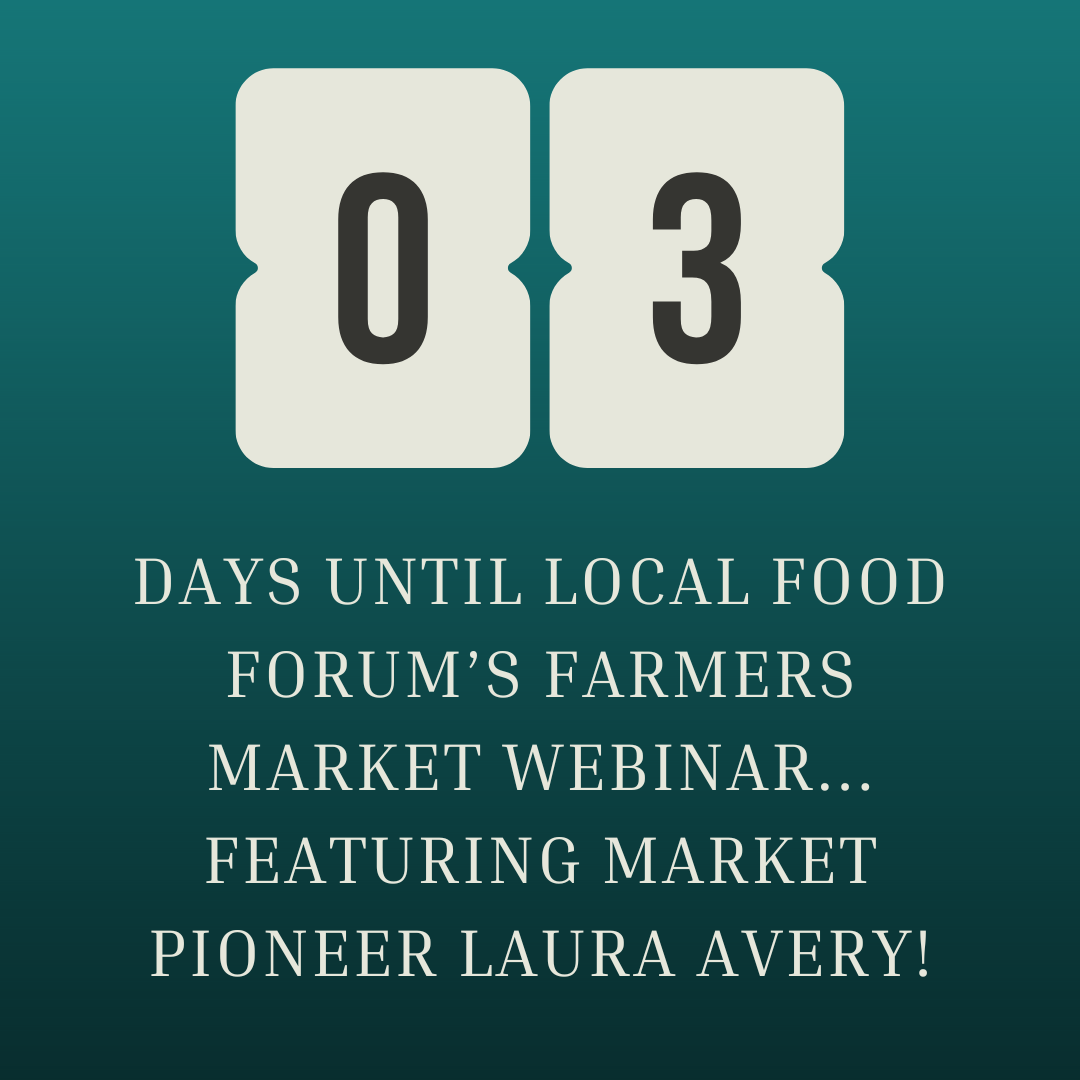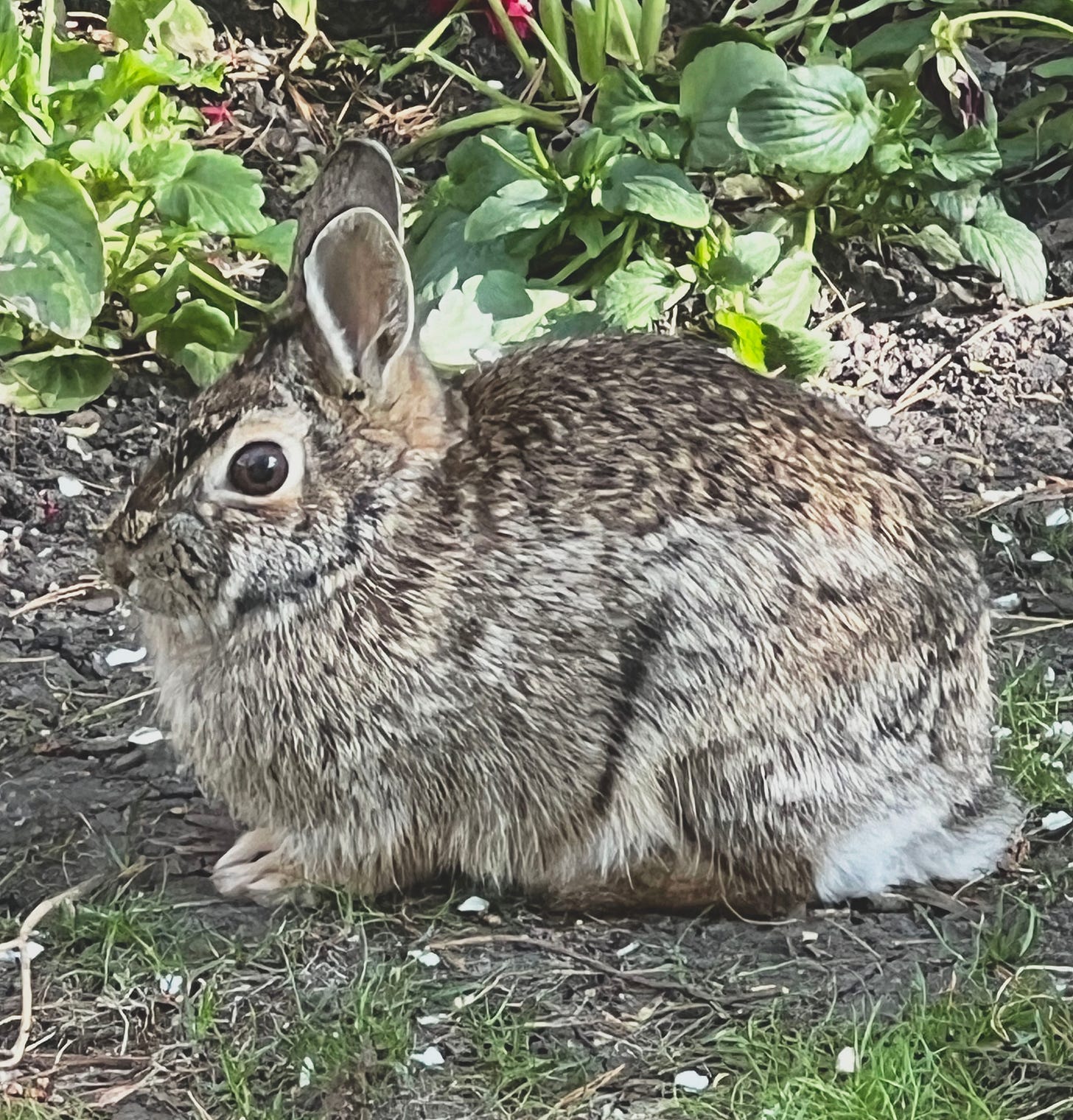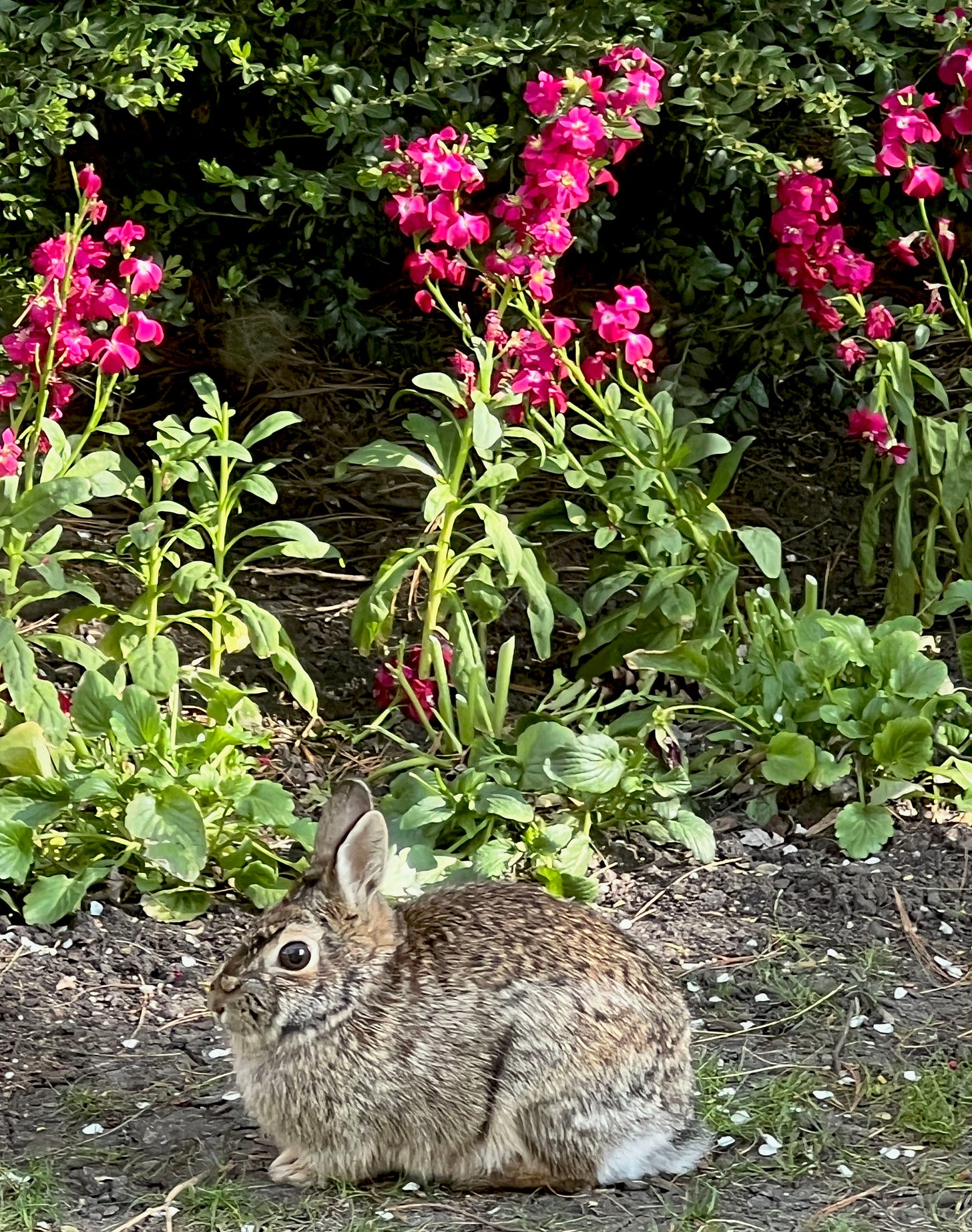Navigating a Path Toward Food Sovereignty
Learn about Community Food Navigator... also, register for Monday's webinar
Community Food Navigator Blazes a Trail

Many residents of under-resourced communities lack sufficient access to fresh and nutritious food. Most often, discussions about how our society should address this issue focus on what others can do to help: establishing more grocery stores in “food desert” neighborhoods, creating more food banks, increasing government food assistance benefits, funding programs that increase the value of those benefits at farmers markets.
There is another approach, though, and it is well represented by Community Food Navigator, a Chicago non-profit launched in 2020. Its focus is on providing tools and resources to help people of color in underserved areas produce food for themselves and their communities — the core of the concept known as food sovereignty.
As Managing Director Nick Davis explained, “The purpose of the Community Food Navigator is really to build power amongst growers of color, build connections and relationships in our food system, and coordinate our food system a little bit better.”
He continued, “It's important that the community has a sense of how other people, block by block and neighborhood by neighborhood and then the region, define that for themselves, and how we can start to organize and convene people and tighten up our relational networks so that we can actually move towards those definitions of visions of food sovereignty.”
As in the overall local food ecosystem, there are everyday heroes working in a variety of ways to address the issues of individuals and communities facing food insecurity, but collaboration has tended to be lacking. “There's a lot of people who have done really, really good work in their lanes, food policy work, food access, growing farmer training, all of the above,” Nick said. “But it's very difficult for them to keep track of what all of the organizations around them are doing.”
Nick said the food justice community knew there was a need for better communication and coordination. Philanthropists Margot Pritzker and Francia L. Harrington — working alongside Erika Allen, co-founder/CEO of Urban Growers Collective and a longtime leader in the food justice community — responded by launching what became Community Food Navigator late in the past decade. Through a series of listening sessions, the need for better communication and interaction was driven home.
As Nick described:
We ended up with the overwhelming amount of feedback saying, we really want stronger coordination within a food system. And to break down silos, we really want people who are telling honest stories about how we ended up here. We want an organization that's really oriented around building capacity for small scale growers and particularly for growers of color. And not just for any one neighborhood, because some organizations are doing that kind of work, but for the entire regional foodshed, to include big parts of Illinois and Michigan and Iowa and Wisconsin, since they all have an impact on Chicago's food system.
Creating a Community Food Navigator app became a matter of immediate necessity, as the organization launched into the teeth of the COVID pandemic that made in-person gatherings impossible for a lengthy period. Originally considered as a possible directory of community-based food sources, it evolved into an invitation-only platform in which growers of color could discuss issues of concern among themselves with a degree of privacy.
Over the past couple of post-pandemic years, Community Food Navigator has been able to introduce the kind of personal interaction and networking that was always intended. One of the organization’s priorities is introducing local residents to food growing and the concept of food sovereignty.
Nick said, “We really want to be an access point for people who are making their first touch with the food system” through activities such as volunteer events at farms to connect with local growers and raising awareness of local food options in communities.
If you had to boil down Community Food Navigator’s work to one word, it would be “empowerment.” As Nick summed up:
“If we're thinking about how we can use food to transform our communities and climate, and to push us to have more well-nourished and well-connected communities and economies and ecosystems, we're going to have to think deeply about how we shift our food system and build stronger relationships between people, and think in a smaller scale and think more locally about how we can get people access to food.”
Note: I am so pleased that Nick Davis and Community Food Navigator are active supporters of Local Food Forum’s “Better” Dialogues webinar series.
Our next Local Food Forum’s “Better” Dialogues webinar takes place in just FOUR days (Monday, April 29) at 7 p.m. central. And what a lineup!
Laura Avery, a true legend in the farmers market world, will be joining our lineup of guest experts for a conversation with “Better” Dialogues co-host Chef Sarah Stegner — who was a founding Board member of Chicago’s Green City Market in 1999 and continues to be active in the market’s activities today.
Register now (for free!). We will send all registrants the Zoom link by email.
Laura became manager of the Santa Monica Farmers Market adjacent to Los Angeles in 1982, a year after its founding, and at a time when there were just more than 1,000 farmers markets across the entire country. Over her following 36 years as manager, Laura played the leading role in growing the Santa Monica market from 23 farmers and a relative handful of shoppers to roughly 130 farmers and throngs of attendees.
Her work also influenced the more than seven-fold rise in the number of U.S. farmers markets, including Chicago’s Green City Market when it was started 25 years ago by Abby Mandel, a chef and Good Food activist.
Both Laura and Sarah have both played major roles in helping stimulate the growth of local food cultures both in Chicago and across the nation. This will surely be a memorable conversation.
After their chat, Sarah and I will briefly discuss what we’ve seen in the season’s earliest markets and what to expect in May, as openings surge and the region’s outdoor growing season hits stride. We then will engage with the rest of our amazing guests:
Janelle St. John, executive director of Chicago’s Growing Home Inc. non-profit
Alex Finn of Michigan’s Finn’s Ranch
Kyle Jacobson of Illinois’ Jacobson Family Farms
Matthew Ruffi, who heads up the Link Up Illinois program — run by the Experimental Station non-profit — that provides financial support for markets’ “Link Match” programs, and also organizes Chicago’s Uptown Farmers Market (in his role as president of the Chicago Market co-op grocery project)
Don’t miss out on this lively and informative webinar.
Bob’s World, and Welcome to It
Some of our neighbors in Lakeview East are so darn cute!
Have a great weekend…

